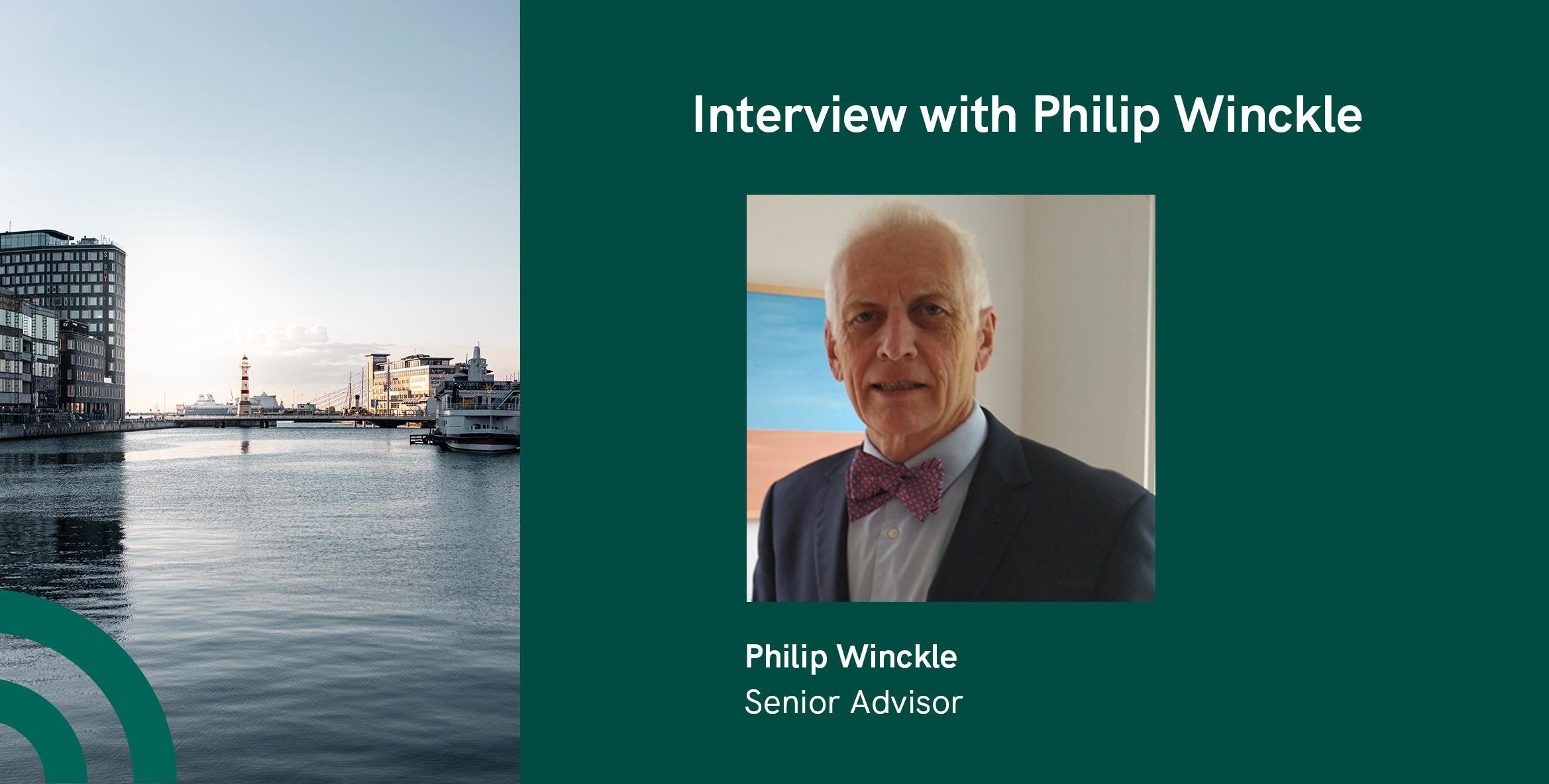Interview with Philip Winckle
We are pleased to have Philip with us on the Advisense journey. Philips long career in banking make him a very valuable expert advisor within the Credits and risk field. Get to know Philip and learn about his interesting background in this portrait interview.

Philip Winckle, you are a leading risk expert at FCG. Please tell us a little about yourself.
I was born in Australia but have lived in Sweden now for nearly 20 years. As I am now over 60 years old my children have left home, so I am able to spend half the year in Italy (where my wife has family) and half the year in Sweden (normally the summer half) where I spend a lot of time fixing, and occasionally sailing an old boat. I believe in free enterprise, responsible government, responsible banking and ensuring that we have a good planet to leave to our children. I also believe that none of these four things should conflict with the others.
How would you describe your background and area of expertise?
I would best describe myself as an experienced lending banker who would have liked to be a “quant”, a quantitative analyst. I had the good fortune to study financial mathematics, economics and accounting before it was popular and have been able to use all three skills in a long banking career. I have done almost every job in the area of bank lending: sales, relationship management, credit approval, customer financial analysis, problem loan workouts, portfolio management, credit risk modelling and stress testing. It is surprising how often my old loan workout or credit analysis experience is useful in model building or validation, or just talking to business.
I spent most of my banking life with the SEB Bank Group, in Australia, Singapore and finally Sweden culminating in the interesting and demanding role of “Head of Group Risk Control”, which involved running the global risk department as well as regularly reporting to the management board and even the external board, when required.
I am proud to be one of the bankers who supported and helped with the founding in 2005 of the non-profit industry association called Pan European Credit Data Consortium, which is now known as the Global Credit Data Consortium or GCD for short. I was so vocal in demanding good standards for credit data collection and analysis that I joined the board, later took over as chairman and eventually became the first CEO (executive director) from 2012 to 2018. The experience with helping banks all around the world to collect and understand their credit default data has changed how I view the challenges of banking.
What made you join FCG?
When I handed over the running of GCD I wanted to continue to help banks understand their biggest risk: the credit risk in their loan books. What better way to do it than to join my old friends at FCG, who felt they could benefit from the occasional input of my long experience. I knew that FCG had good people as I had worked with many of them at SEB, dealt with them as regulators or heard of them through contacts. During my time at GCD I had also been involved in several joint projects with FCG, who supported us in work with the Institute of International Finance, a data quality review and built a pro-bono machine learning model based on GCD data. There are many good consulting firms but FCG’s practical focus in helping financial institutions in an effective way makes sense to me.
What are your focus areas within FCG?
My first assignments with FCG were to help GCD member banks to build or improve their PD and especially LGD models. I am a believer in the need to fully understand and quantify the risk a bank takes when lending and the best way to do this is to have high quality, but understandable credit risk models, be it for regulatory capital, stress testing, IFRS9 or internal capital and pricing.
My other point of relevant expertise is explaining the use of quality models to business and senior management, especially where it concerns portfolio selection and risk appetite. If all banks understood the risks they took and this understanding was properly based on long historical data then I think there would be far fewer bank crashes and much smoother economies, which is what we all want really.